Before the dinner party, I wore heels about one day a week. After the dinner party, I now wear heels every day.
What changed? How could a dinner party hack someone’s mindset on shoe-wear in such a fundamental way?
To understand this let’s first agree that height matters. Research confirms that height bias has a fundamental effect on how we treat each other. And the impact has consequences. Tall men and women end up securing promotions and dates more than short men and women. According to one study, a person who is 6 feet tall would be predicted to earn nearly $166,000 more over the course of a 30-year career than someone who is 5 feet 5 inches.
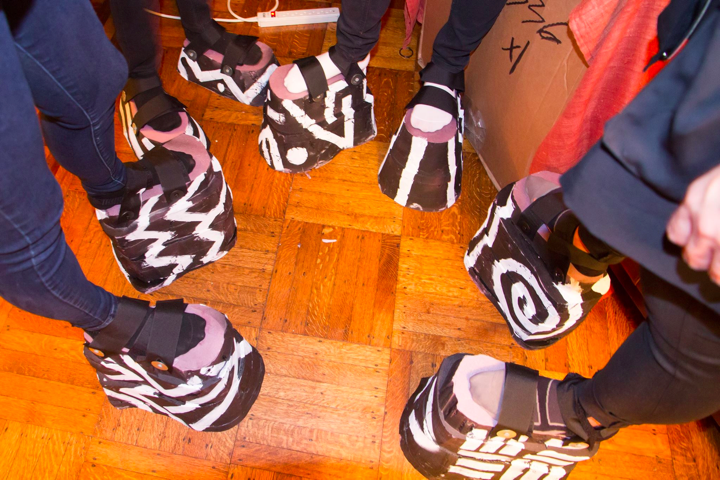
When people entered the party they were asked to take off their shoes and put on a pair of platform shoes designed by Thomas Koff. Thomas is a mastermind maker and created shoes that made everyone at this dinner party a stunning 6’4. He played God and manifested a version of reality in which everyone was the same height.
Everyone saw eye to eye for the first time. We literally got on each other’s level.
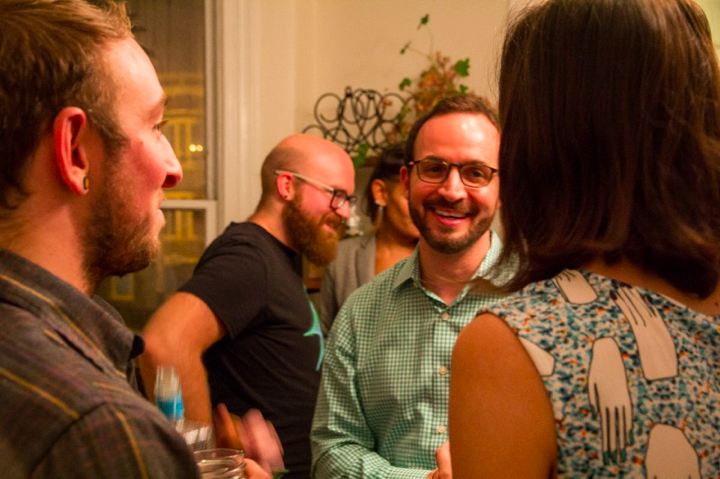
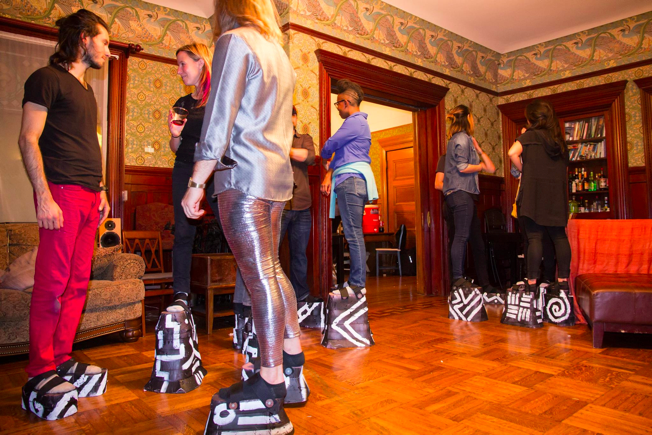
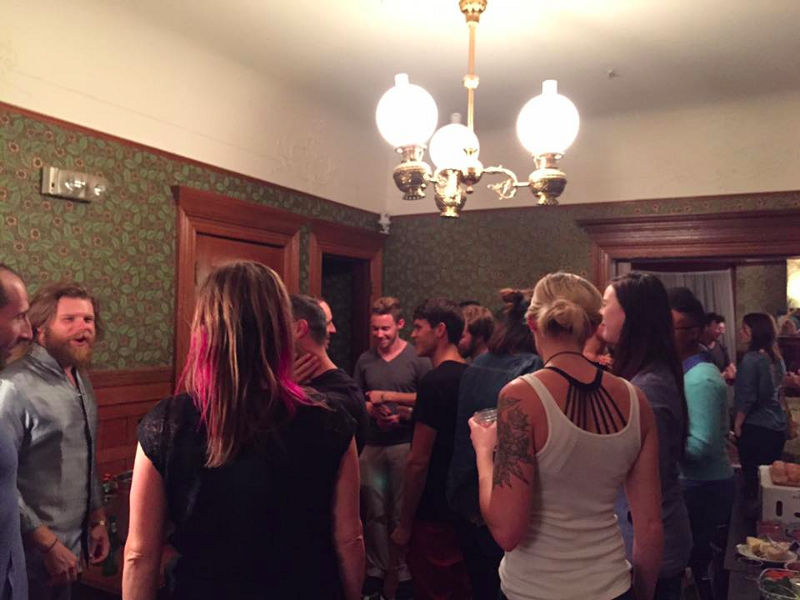
At first, all we could talk about was how weird this new paradigm was, “I can see the top of your head!” the previously under-privileged short people exclaimed. And then we started having real conversations. We talked about relationships and passions. We got distracted discovering new friends and forgot we were wearing these height-equalizing shoes.
UNTIL…
…a 5’10 male walked into the room.
To be clear, 5’10 is an average height for an American male. But at that point in the evening, it seemed that this man was a legal definition midget. He attempted to join in on the conversation but after a couple minutes the chatter floated above his head and then excluded him completely. By seeing our behavior without the ability to explain it away by some other variable, we had to admit height impacted our perception of other people.
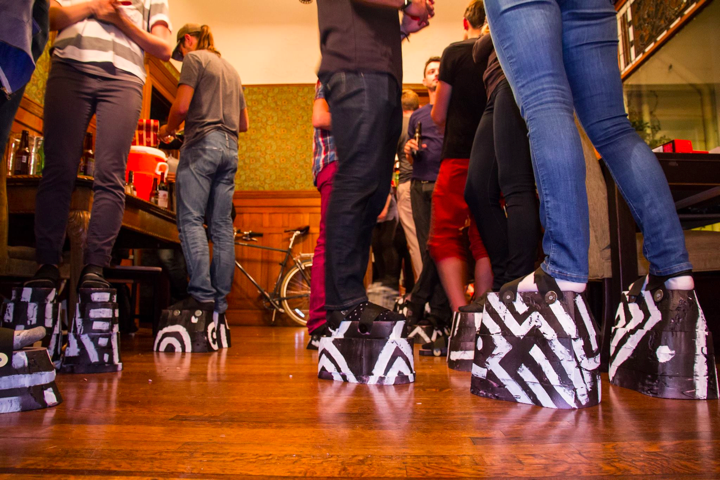
To figure out how our world changed when we were equalized we asked people some questions.
Before people put on the shoes we asked them what height they would optimally want to be — given they could choose their height. We then asked the same question after they took off their shoes.
No matter male or female, short or tall, people want to be taller.
[see 90’s rap “I wish…” for less scientific, but equally powerful data]
Before the event tall people wanted 1 more inch, average height people wanted 3 more inches and short people wanted a 3.5 inch increase.
How did our height requests change after walking around as 6’4 for two hours?
After experiencing the world from another level and trying on the shoes, the average person still wanted 3 more inches. No change.
But the short person, possibly realizing how short they are, wanted one additional inch, bringing their total height request to 5 inches.
This data echos what we heard from short people at the event — most shorter people were amazed at their new found confidence with the additional boost. It seems that short people may not realize the extent to which their height is a handicap on their interactions.
Perhaps height is like gender and weight. We understand when people are overweight that this may change our perspective, but by not acknowledging it we forget how much it factors into our decision-making. Likewise, with gender — women may understand that men get more advantages at work, but without knowing exactly what they are, we don’t fully factor them in.
And tall people?
In contrast to the shorter people, tall people retracted their height request and said they were quite happy to stay at the height they were already at.
Tall people may have been humbled a bit by this height-equalizing exercise. As part of the survey we asked people to create the “optimal height distribution” for a new imagined society.
Tall people ended up creating the most equal society of all.
Why is this? Our clues come from how tall people talked about the experience. This quote sums it up nicely:
“I realize that I get confidence from my height and without the advantage of it, things feel different.”
What this survey and the sentiment suggest is that perhaps when faced with our privilege (in this case height) we can make small adjustments to our mindset that help to make the world a little more equal.
When I took off the shoes I was faced with my own heightened reality. I’m 5’1 without heels and that 5’10 legal definition midget is my boyfriend. Without the shoes, I’m the one looking up at him. But for one night we literally got on each other’s level.
While I may now wear heels more or stand farther away from taller people, I’m also confident that we can overcome the feet and inches we are born with by figuratively (vs literally) trying to get on the other person’s level.
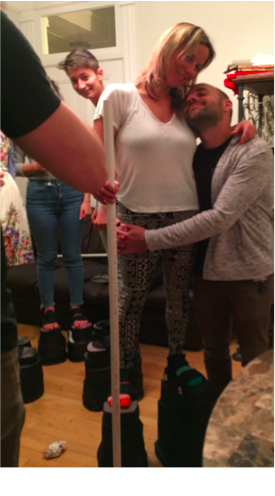
— — — — — — — — — — — — — — — — -
Want to attend this type of event in the future? Sign up here
We project our height onto others.
According to the survey we gave all of the guests, if you are shorter you think that the current distribution of height in the U.S. sways shorter than tall people think it does. If you are taller you think the world is a little taller than shorter people think it is. Given we tend to think people are more similar to us than they actually are, it makes sense that when we — literally — see the world from one viewpoint, we also think others see it from the same view point.
How does height impact our dating life?
Of course, this depends on how tall you are. That said, here are the stereotypical rules people are living by:
- Shortest person a female said she would date: 5’4 ft
- Tallest person a female said she would date: 6’5 ft
- Shortest person a male said he would date? 5′ ft
- Tallest person a male said he would date: 6’2 ft
- No change per/post event
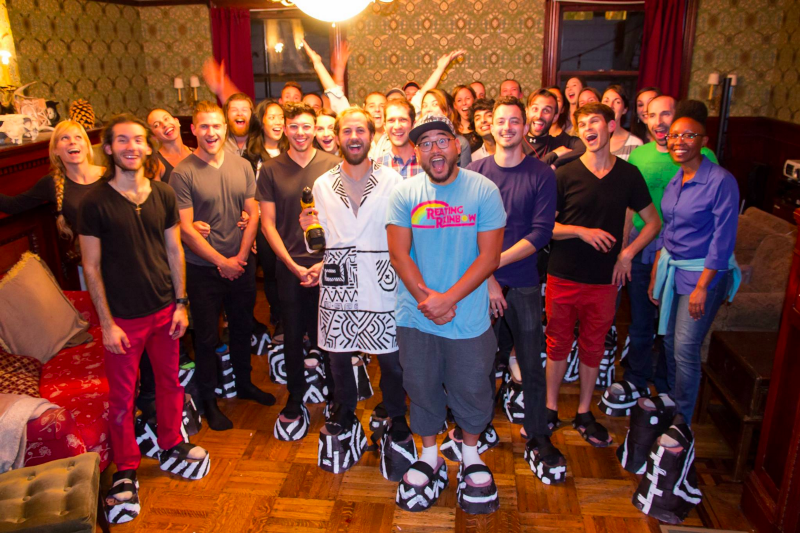
Want to learn more about different biases and how they affect your life and work? Check out our Behavioral Economics Bootcamp.
Originally published at medium.com by Kristen Berman on October 31, 2016.
